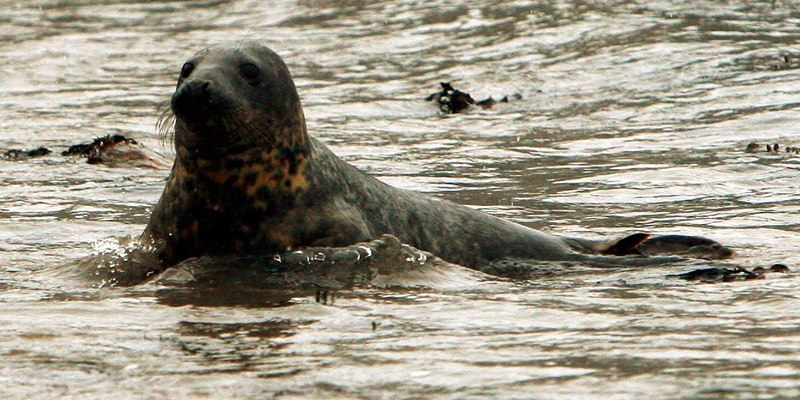A leading expert on seals has welcomed laws introduced to protect the creatures in Scottish waters.
Callan Duck, a senior research scientist from St Andrews University’s sea mammal research unit, has welcomed legislation implemented on Monday that means it is now illegal to kill or injure a seal without a licence.
Introduced under the Marine (Scotland) Act 2010, the culling of seals in waters such as the Tay, Forth and Eden estuaries will be heavily regulated in a bid to prevent declining populations of the animals.
Although the move may anger some in fishing and other marine circles, ecologists have welcomed the measures as a means of preserving the creatures in local waters.
Mr Duck said, “The laws that have been introduced are quite tight when previously licenses were not required. The Tay and the Eden are slightly unusual as they are subject to a conservation order from January 2007.
“This new scheme states that people required to shoot seals can apply for a licence if justified. They put in an application for a certain number and this is scrutinised on the effect of the local population, trends and other applications. Then a number will be allocated.”
A 2004 scheme in Moray using restrictions similar to those put in place on Monday saw the number of seals culled fall by around 90%.
With the number of common “harbour” seals in the Tay thought to have dropped by more than 80% since 2003, this legislation could help to swell their numbers around the coastline of Fife and Tayside.Licences essentialHowever, while acknowledging that this may not please everyone, Mr Duck added that the introduction of licences was essential to preserving seal numbers and will play a role in determining how healthy the population figures are.
He added, “This will give us an estimate of the number of seals being shot as we’ve never previously had those figures and there was no obligation to record shot seals in the past.
“This is a much smarter way of making people who shoot seals think about what they shoot. It’s also better for the seal population.
“People who would shoot willy-nilly will have to realise that times have changed. Marine Scotland has to be congratulated for getting this as right as it can.”
As well as introducing licensing for the culling of the mammals, a number of seal conservation areas will also be introduced around Scottish coastal waters.
Scottish Natural Heritage welcomed the new legislation, with John Baxter, the body’s principal adviser on seals, saying, “Given the serious and worrying decline in the numbers of common or harbour seals, these new measures are particularly important.
“They are a considerable improvement on provisions contained in previous legislation, providing a clear approach to seal conservation while taking account of the needs of fisheries and aquaculture interests to protect and manage their stocks.”
Rural affairs and environment secretary Richard Lochhead said, “These seal management measures deliver a significant improvement to how we manage the impact of seal predation on fisheries and fish farms around our coast. It will allow industry to maximise the benefits from sustainable fishing and aquaculture while minimising any loss to seal predation and providing important seal populations the necessary protection to breed and survive in our waters.”
